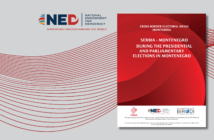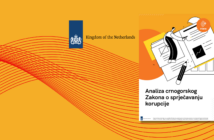Non-transparent, untimely and unlawful actions of the Agency for Prevention of Corruption have reduced the transparency of campaign financing for the 2020 parliamentary elections and encouraged violations of the Law on Financing of Political Parties and Election Campaigns.
The Agency determined who was subject to the law and gave interpretations of the new legal provisions only after the elections because it did not act ex officio, and it delayed adopting of decisions on reports.
This institution narrowly interpreted the provisions of the law, and found that they did not apply to marketing agencies, internet portals and billboard advertising companies, which opened space for numerous abuses.
APC rejected all reports against institutions that did not publish data on spending during the election period or hid certain transactions. Even when the institutions admitted that the data had not been published, the Agency found that they had not violated the law.
In rare cases when the Agency decided that the law had been violated, it is not known whether it initiated misdemeanour proceedings and what was the outcome.
The Agency did not monitor whether the persons who give donations to political parties are connected to companies that perform activities of public interest, although that prohibition is prescribed by the law. It delayed adopting decisions on reports, and then postponed making that information available to the public, which made it impossible for citizens to find out about illegalities in the financing of the election campaign.
The Agency itself violated the law, while its Council approved such actions. That institution published price lists of entities that provide advertising services in the election campaign, although they were submitted after the legal deadline. APC met only part of the legal obligations to ensure the transparency of data on the spending of public funds, which allowed the institutions to change the published data subsequently in order to cover up violations of the law.
By unjustifiably restricting access to data, the Agency partially or completely prevented civil society and the public from monitoring the implementation of some provisions of the law during the election campaign. By hiding the information, the Agency also limited public oversight of the legality of that institution’s work. Part of the data was disclosed more than half a year after the elections, after it was previously declared secret. Some documents were completely censored prior to disclosing.
Complete publication download HERE (PDF).



